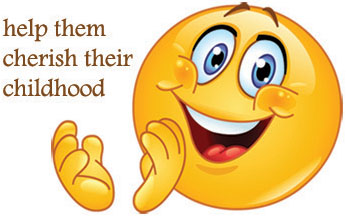Treatment strategies in children
Frequency of childhood problems
While childhood is the phase of serenity and calmness; a period where we truly don’t have ‘problems’ in life as they usually stem in later as we grow; behavioral and psychological aberrations are becoming more common in children. Several behaviors of children may be unusual but many of these are considered to be part of the normal spectrum of development. They don’t imply that your child is ‘abnormal’. Some children are hyperactive and jumpy, others are shy and quiet; some like to read books all the time while others enjoy sport. The goal of therapy is to bring out the best of their innate abilities in each child. Most of the treatment strategies for correcting children are simply about behavior modification to attain better outcomes from one’s own behavior.
Should you medicate your child?
Medicines are helpful in certain conditions and are prescribed only then. Unnecessary medication for children is not an ethical practice. Only in extreme cases, they may be required; it is then that are these prescribed. Some medicines require blood tests, ECG or CT Scans before their initiation. Medicines in children should always be given under supervision to ensure that the child is really taking them and to also assure that there is absolutely no risk of overdose. When given in combination with focused and appropriate behavior therapy, medications work wonders by eliminating the troubling symptoms in the child.
Behavior therapy
Any modification of problematic behaviors requires specific guidelines that are to be enforced consistently. These essentially include positive consequences for obedience, and negative ones for infractions. Therapy needs to be consistent, reliable and empathic. The child must not feel threatened or punished else the behavior will never change for the better. Psychotherapy changes the dysfunctional thinking in children (as well as parents). It promotes amends in parental and child behavior, helps resolve conflicts, and builds positive communication in the household. It stimulates pro-social attitudes and avoids the negative and disruptive conducts; thus assuring favorable outcomes.
Therapy at MINDFRAMES
At MINDFRAMES, different treatment options for children involve one to one interaction, puppets, games, activities, music, computer assisted programmes as well as non-verbal methods, presentations, guidance booklets (according to the age of the child as applicable). Punishment does not find a role in behavior modification. Parent education and guidance forms an integral part of our therapy protocol where we empower parents with essential skills for building better children. Our dedicated team of qualified experts assures you an in depth understanding of your child’s mind; and offers techniques that build upon your child’s strengths and at the same time, overcome weaknesses, effectively, gently and efficiently.
help them cherish their childhood
